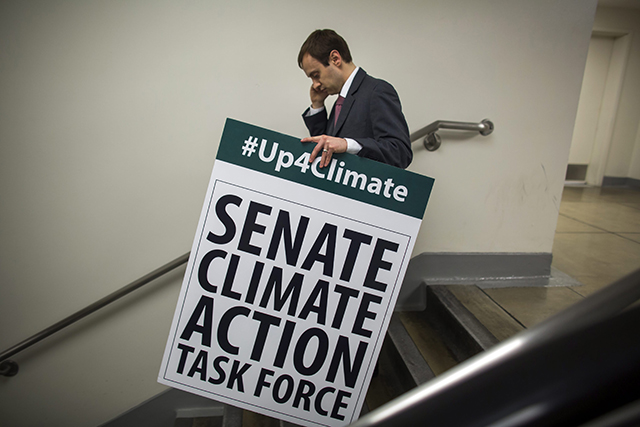Senate Democrats gave a series of speeches all last night to help prevent climate change, despite that there is no evidence yet that the planet is in imminent danger.
Attempting to imitate the popular filibusters given by Sens. Rand Paul (R-KY) and Ted Cruz (R-TX), twenty-eight Democrats took to the Senate floor to save the planet with their words, or, more accurately, their hot air.
But what the long-winded speakers last night completely ignored is that climate change reduction is freedom and prosperity reduction. Just consider the forthcoming Environmental Protection Agency (EPA) regulations designed to help end climate change.
These EPA regulations will greatly inhibit coal-produced energy here at home. Construction of new coal-fired power plants would be thwarted and existing power plants would be effectively forced out of business. This would have devastating effects. Heritage’s Nick Loris points out that:
Coal provides approximately 40 percent of America’s electricity generation. By significantly limiting the use of an affordable energy source, the EPA’s regulations will increase electricity prices for American households. Since low-income families spend a larger proportion of their income on energy, a tax that increases energy prices would disproportionately affect the budgets of the poorest American families.
But the poor would not be the only victims. Manufacturers would be hit hard as well. As coal use is forcibly reduced, manufacturers, who use a lot of energy and employ a lot of people, will be required to absorb or pass along the costs of more expensive and less efficient energy. Loris notes that “manufacturing is an energy-intensive industry, and the impact of the higher energy prices on manufacturing averages to more than 770 jobs losses per congressional district.”
Reacting hastily to unmerited fears of climate change alarmists can lead to crafting bad public policy that can actually make people poorer. Talk is cheap but actions can be costly. The EPA should make decisions on energy based on sound science, not ideology. After all, affordable energy and the livelihoods of many are at stake.





























